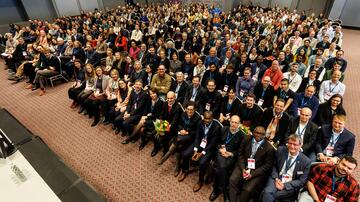United against multidrug-resistant tuberculosis bacteria
World Tuberculosis Day on 24 March is a reminder to the public that 1.5 people still die of tuberculosis (TB) every year. The rise of multidrug-resistant strains is particularly problematic, currently accounting for approx. 450,000 new cases of infection worldwide. An international group of scientists has joined forces in the consortium CRyPTIC to make a contribution to the fight against tuberculosis.
The German partner in this collaboration is the Research Center Borstel, and with this also scientists from the German Center for Infection Research (DZIF). The consortium, led by the University of Oxford and funded by the Bill & Melinda Gates Foundation, Wellcome Trust and MRC Newton Fund, aims to speed up the diagnosis of multidrug-resistant tuberculosis pathogens and make it more effective.
Resistant forms of tuberculosis are usually identified by means of time-consuming culture methods. A rapid and specific diagnosis would enable timely and precisely tailored treatment in many cases. New methods of genome sequencing and determining genetic codes of TB pathogens are faster alternatives for identifying resistant strains.
The key to this is knowledge of the precise changes in the pathogen’s hereditary information, which actually lead to antibiotic resistance. This is exactly the question the CRyPTIC consortium will be working on. In addition to 3,651 TB strain genomes that have already been analysed to date, a further 100,000 pathogen samples from across the world will be analysed in order to create an extensive database for genome-based resistance testing.
The researchers from Borstel have contributed approximately 10,000 TB strains and are involved in testing resistance mechanisms. “Rapid confirmation through genome sequencing is an important research focus in Borstel and at the DZIF", says Prof Stefan Niemann, head of the Molecular and Experimental Mycobacteriology Group at the Research Center Borstel and coordinator of the DZIF research field Tuberculosis. “CRyPTIC will optimally pool research findings and use them in the fight against TB."




